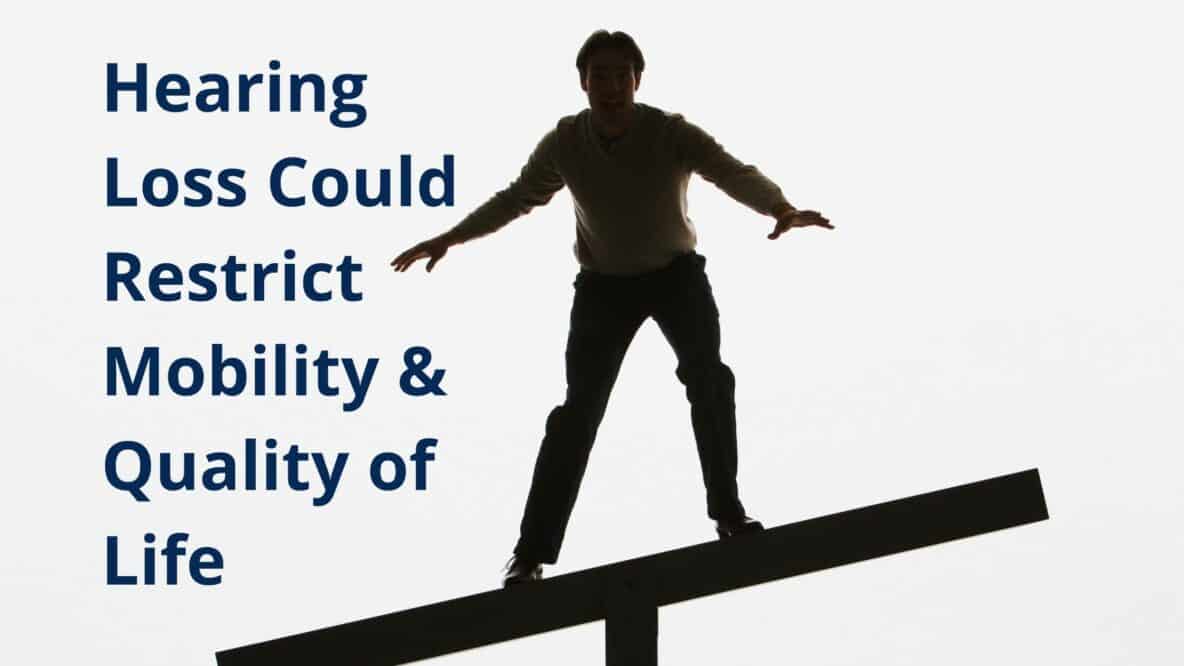Think about what makes your life full and vibrant? Everyone’s gratitude list is different, but for many what comprises a happy life is probably experiencing beloved comforts, like friends and family, or even daily habits that bring you joy. For others, that’s balanced by new experiences and adventures, hobbies, or interests near and far. At least some, if not a vast majority, of our ability to be in the world with ease and comfort contributes to our overall satisfaction with life.
Studies show that older people with hearing loss are less likely to move around freely and easily. This puts them at greater risk for feelings of social isolation, depression, and anxiety. Thankfully, treating hearing loss can alleviate some of these conditions, bringing more comfort to communications and a greater sense of safety in seeking out new experiences.
What is the quality of life?
Quality of life is a phrase that gets thrown about a lot. But what does it mean? We know that quality of life is a subjective term, meaning that it’s judged upon personal tastes and experiences. It’s our own personal barometer of what we consider necessary for our happiness and contentment. For some, completing daily rituals in their domestic life is incredibly fulfilling. In those cases, hearing loss may not have much impact on mobility and enjoyment of life.
But for other people, quality of life, the measurement of their contentment is also wrapped up in connecting with loved ones and family. Sharing time with friends or having new experiences, whether that means traveling or seeing a new movie in the theater. For those people, hearing loss can interrupt activities that bring joy and fulfillment, thus negatively impacting their quality of life.
Mobility and quality of life
One of the ways we measure the quality of life is through mobility because that tends to line up with peoples’ self-reported degrees of happiness and contentment.
A new study reveals that mobility is severely impacted by hearing loss in older folks. In one report, nearly 850 people between the ages of 75 and 90 were studied, confirming notions that older people with hearing loss experience a decrease in mobility. The findings were dramatic: over two years, people with hearing loss were found to be more than twice as likely to limit movement to nearby areas compared to a much larger range of mobility in older people without hearing loss.
Why does mobility suffer?
We know that hearing loss inherently impacts communication. As a default, humans are social animals and need certain levels of connection with others, though those levels may vary person-to-person. But, when hearing declines, it can become difficult to have the briefest of conversations, whether it’s with the checkout person in the grocery line or a dear friend on the telephone.
Another behavior that humans default to is to avoid difficulty. We are great at efficiency — finding the simplest or least effortful way to do something — which is a wonderful attribute. But, we shy away from overly difficult tasks, especially if the energy we exhaust is greater than the return. This is exactly what happens to people with hearing loss trying to verbally communicate with others. What was once an easy and enjoyable encounter can be frustrating, exhausting, and even fruitless.
When communication becomes too difficult for people with hearing loss, they begin to avoid those difficult situations. This is one reason why social isolation is often reported by people with challenged hearing. It can also become physically unsafe for older people with hearing loss to travel, as driving becomes precarious if you aren’t hearing the important traffic sounds you are accustomed to. Even crossing the street can feel unsafe if you no longer rely on your hearing to warn you of honking horns and speeding cars. Losing one’s sense of hearing can leave you feeling disoriented, even in familiar places and with familiar people.
Diagnose and treat hearing loss
Thankfully, in today’s world, we have successful treatments for hearing loss. Hearing aids or cochlear implants have proven to be successful interventions for many years. And, people who wear hearing aids are happy with their functionality. A vast majority of people who wear hearing aids said that their relationships have improved since treatment and that they would recommend them to a friend.
Come see us for a hearing consultation so that we can begin to explore avenues of treatment that fit your individual life. Rather than slowly losing out on the things you love — that which makes up your quality of life — take a proactive step today to enhance your hearing health.

